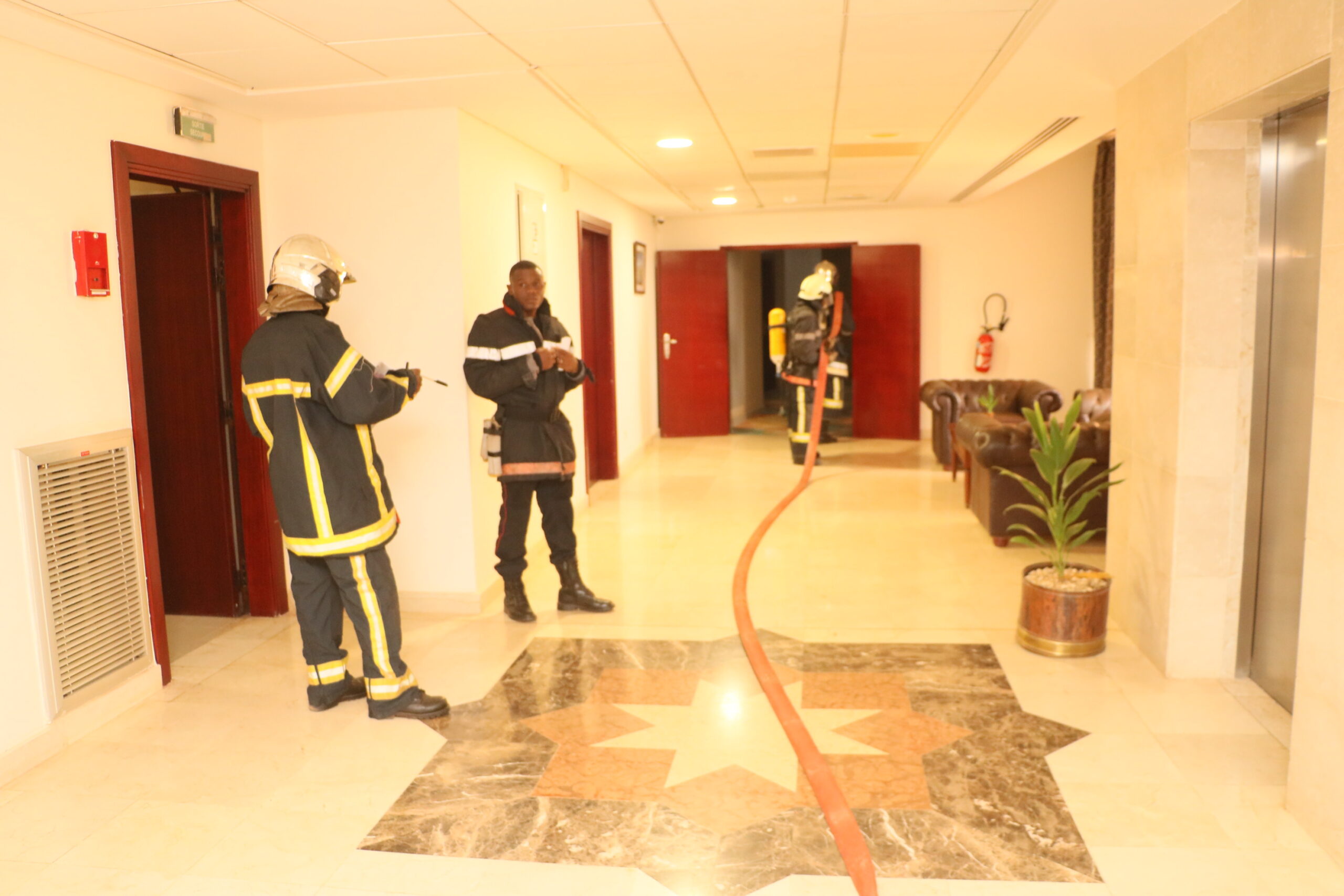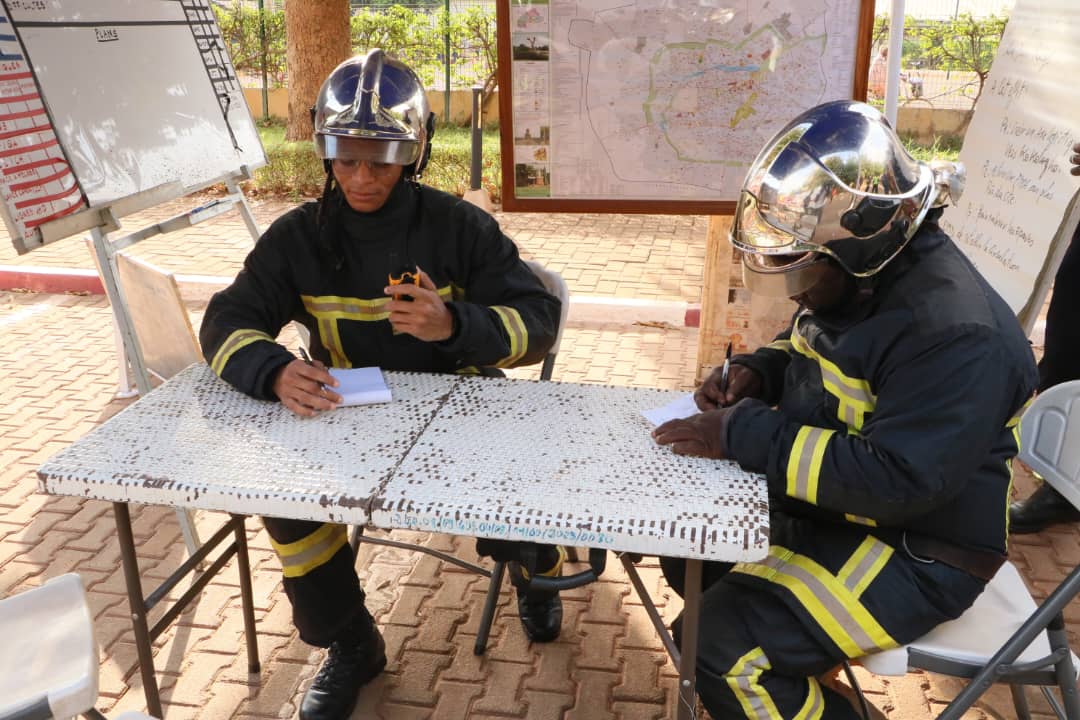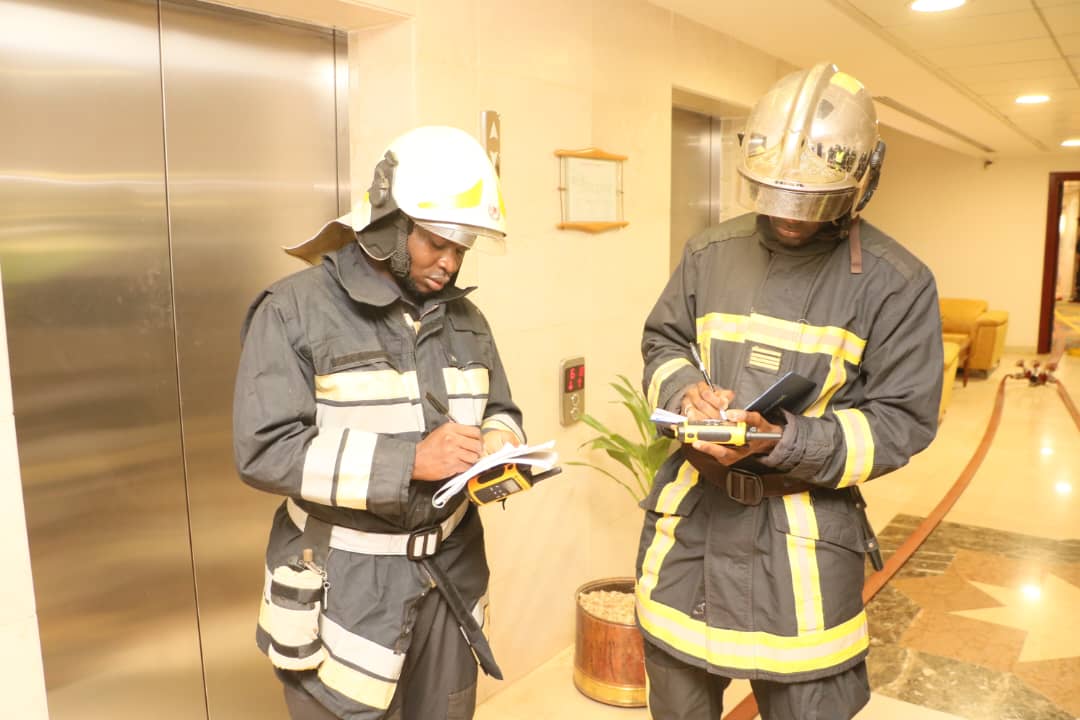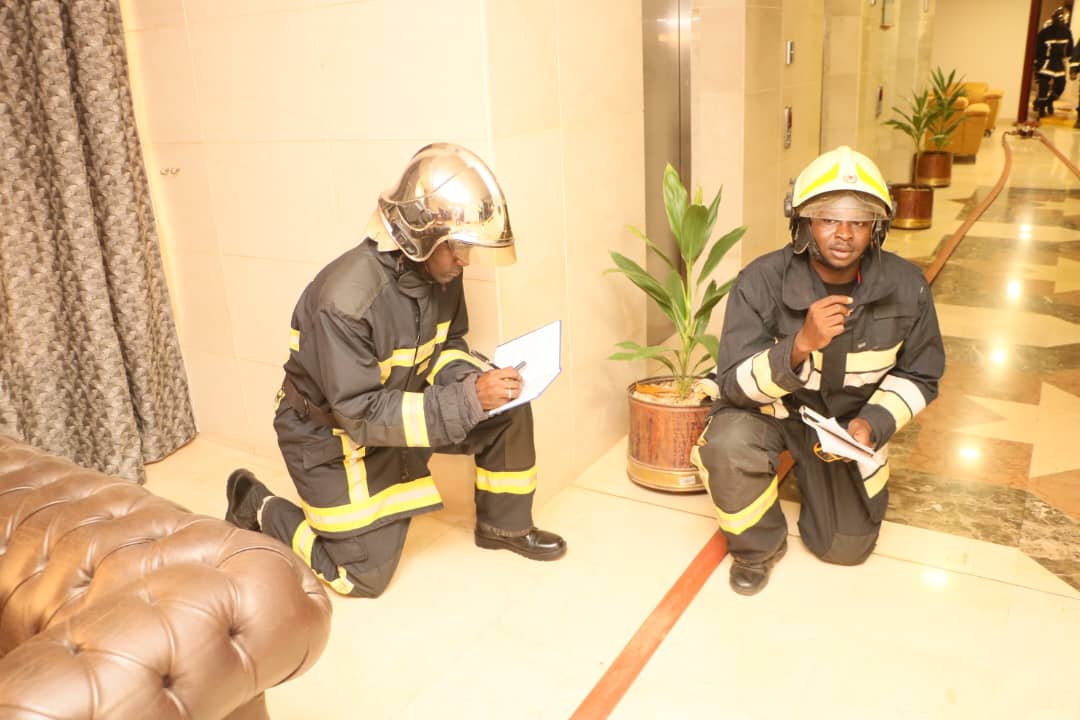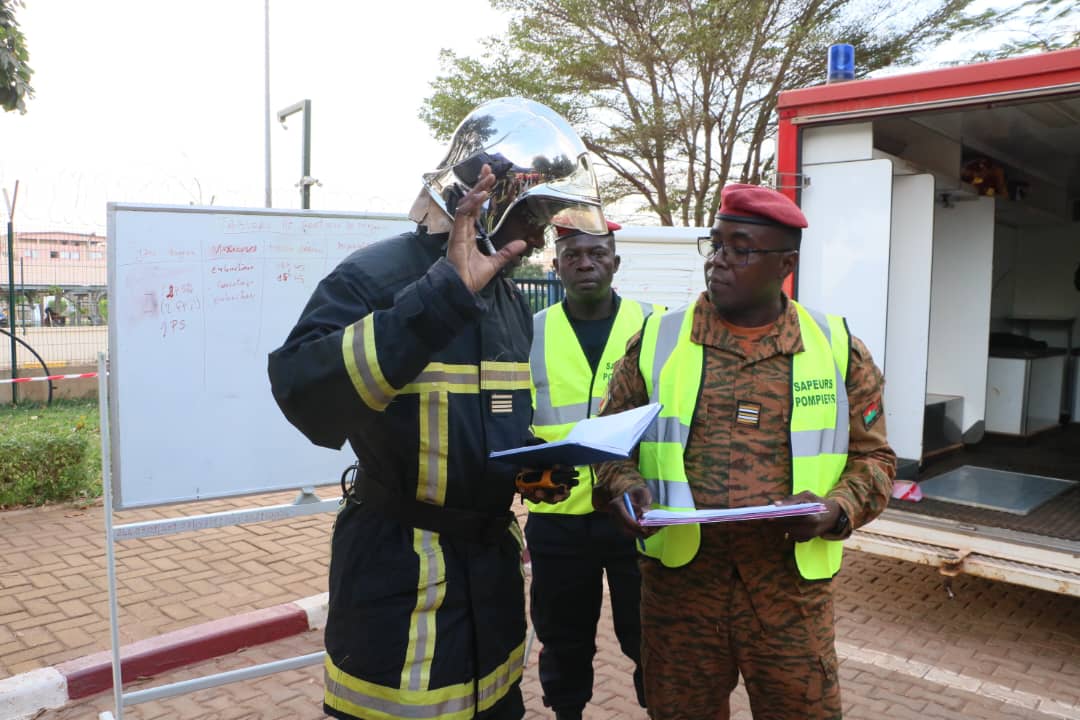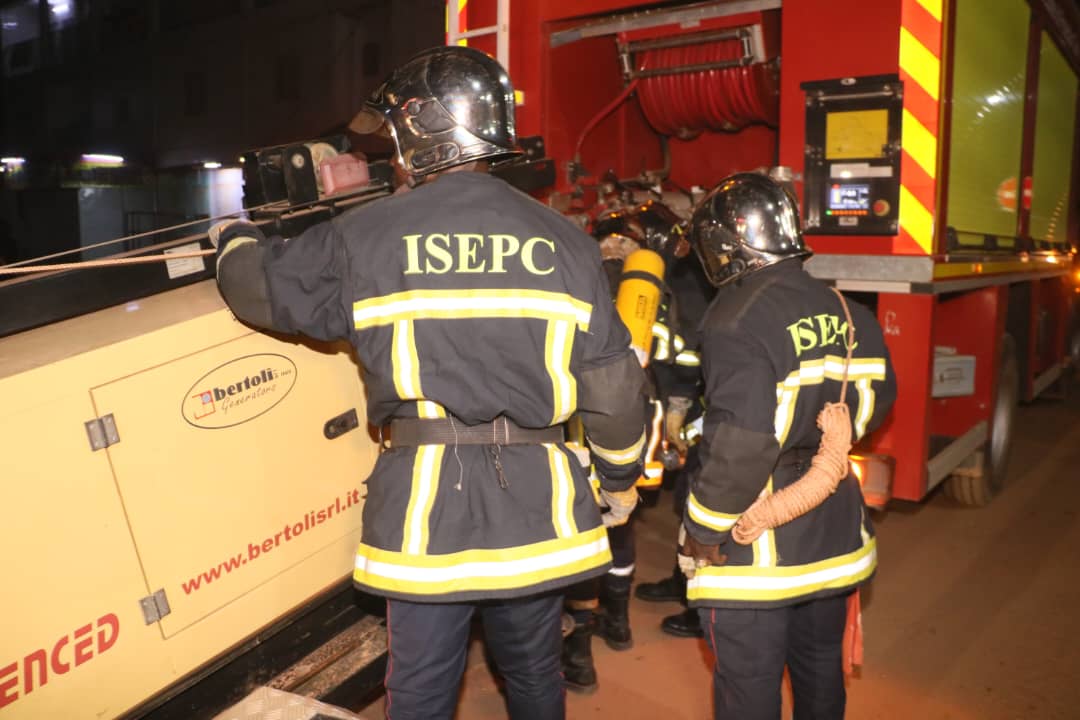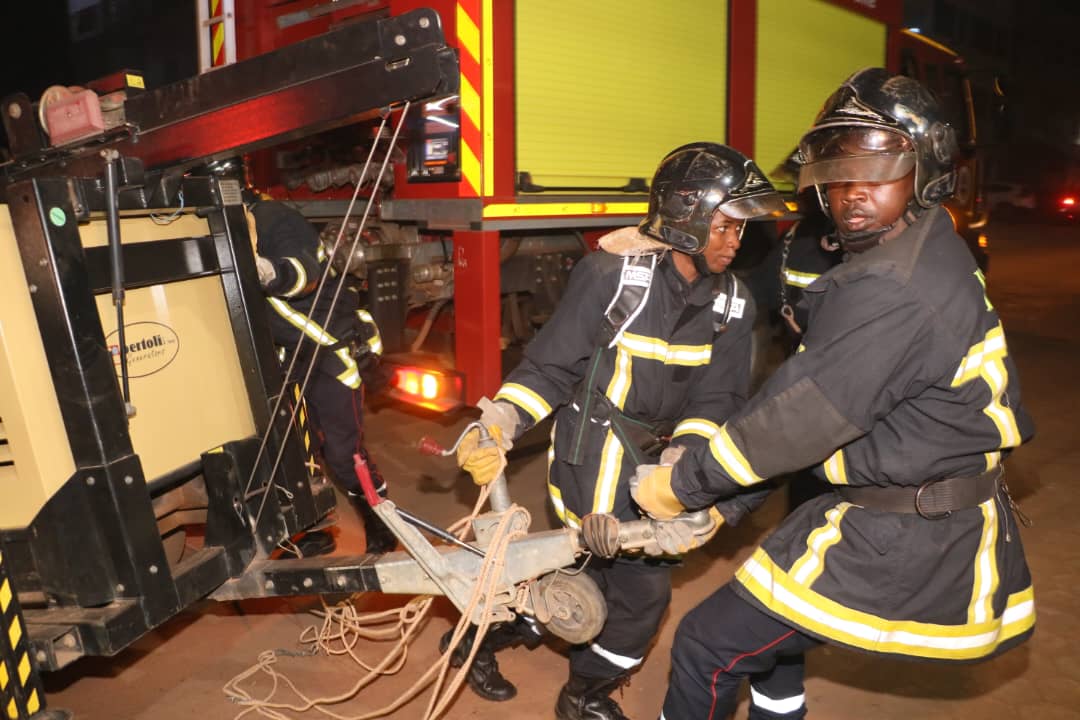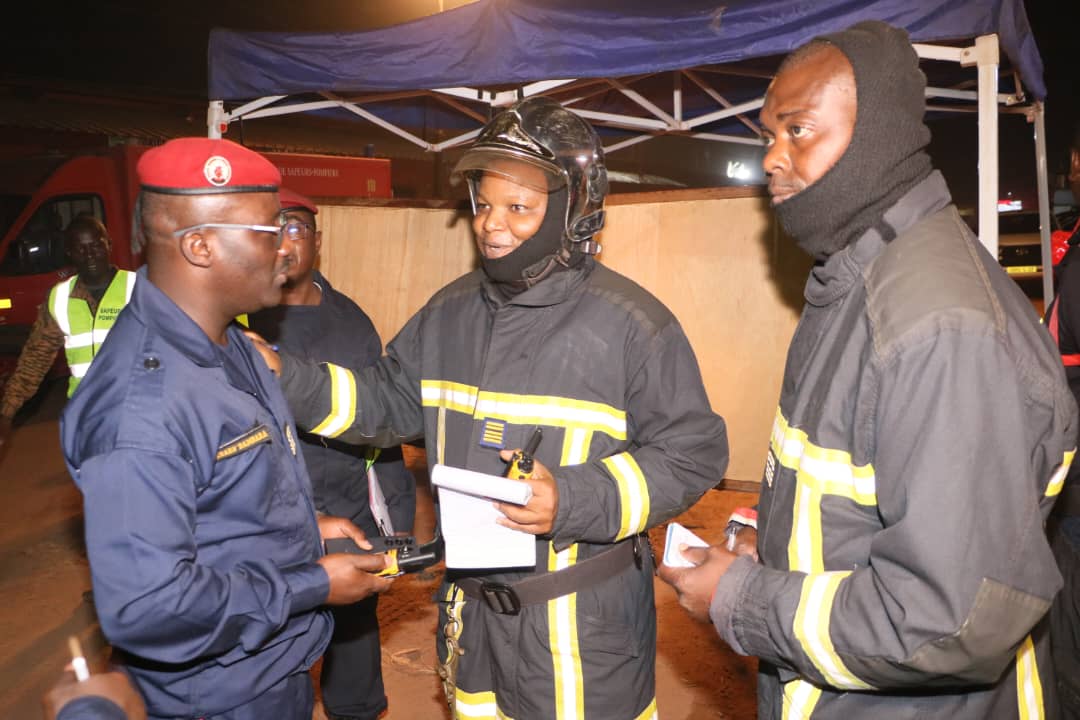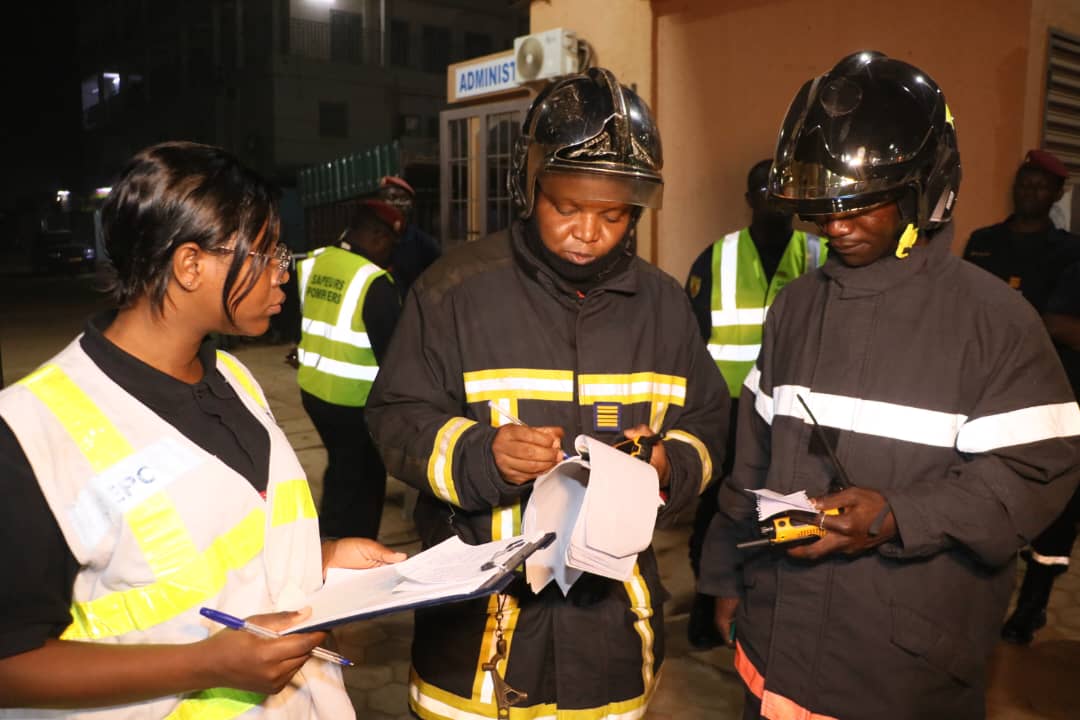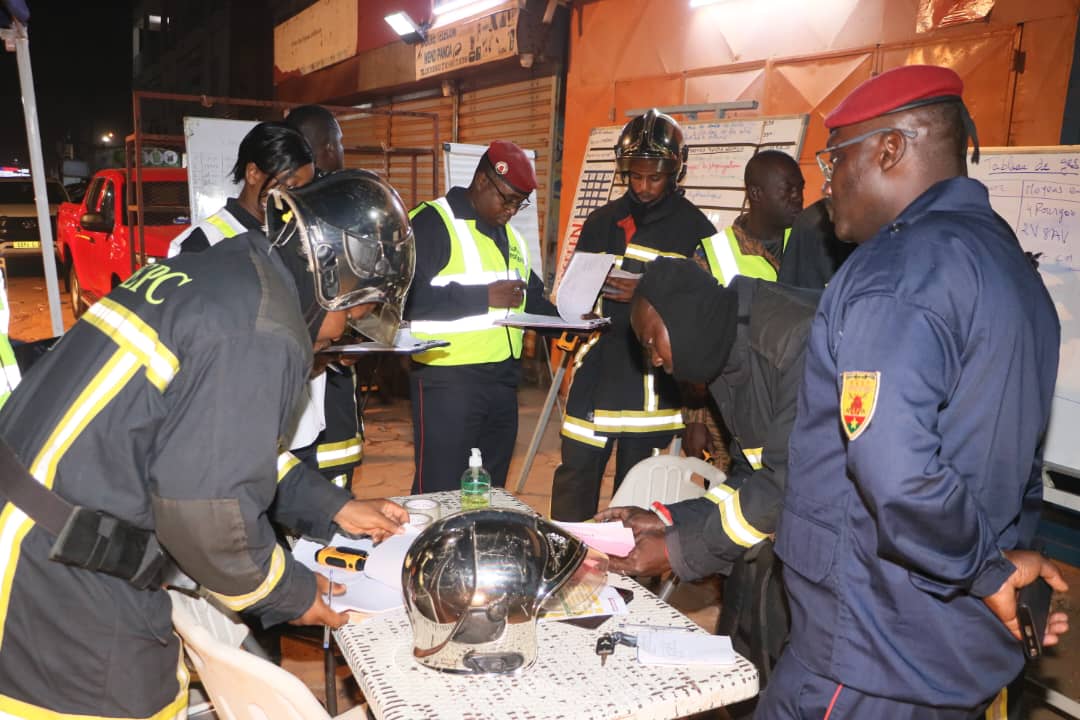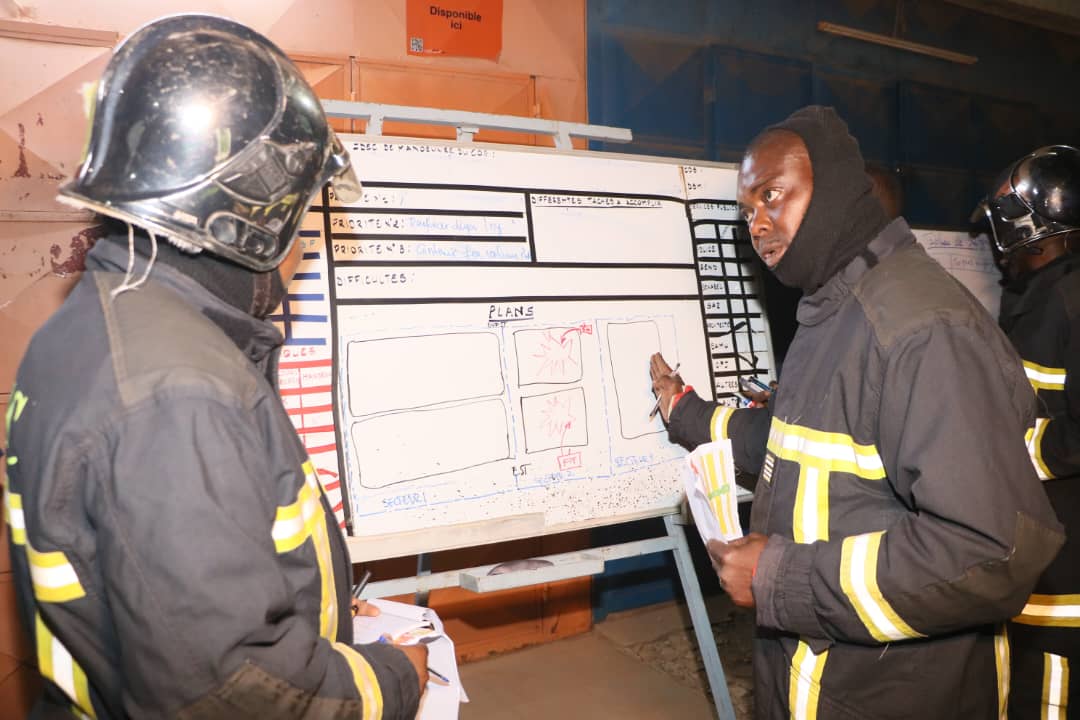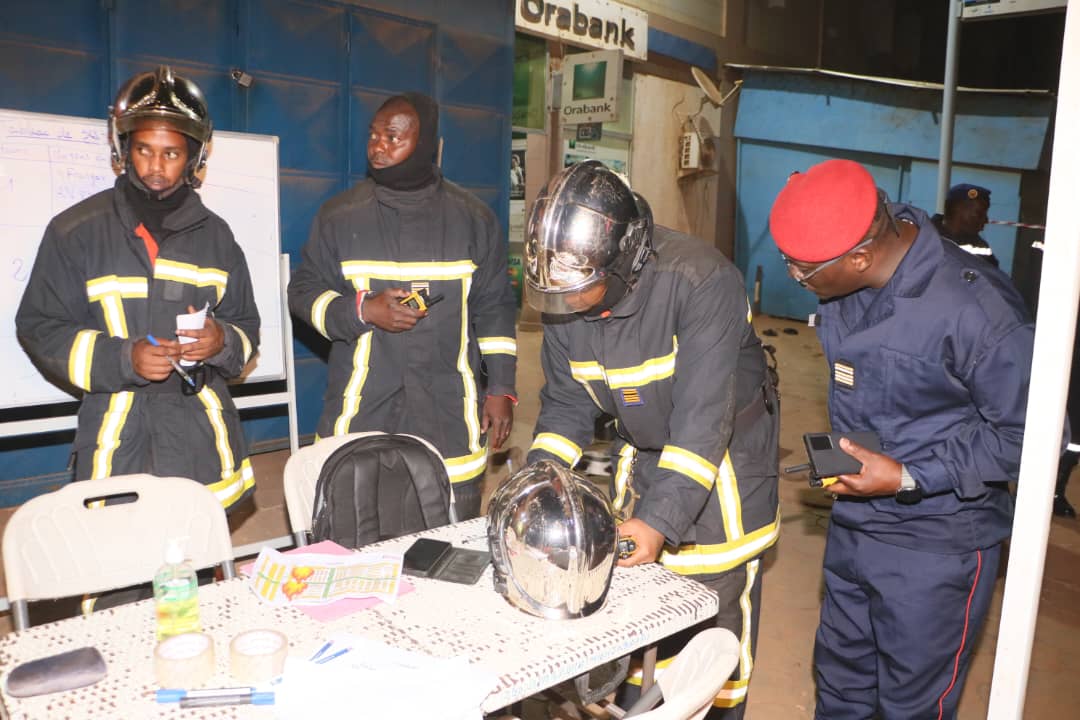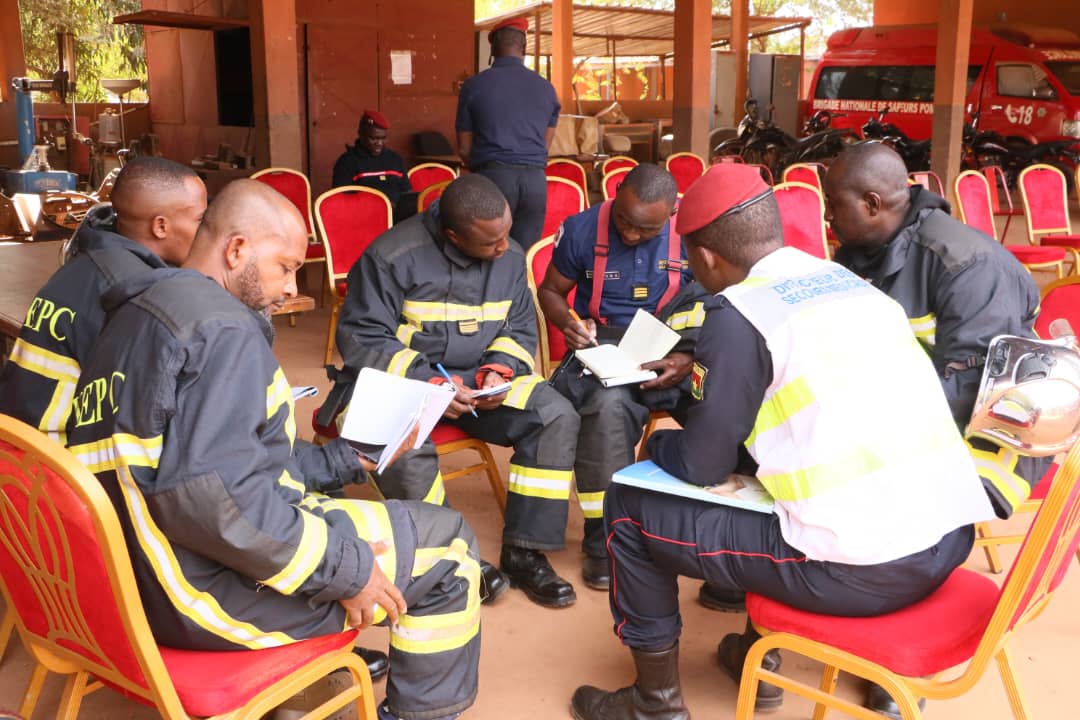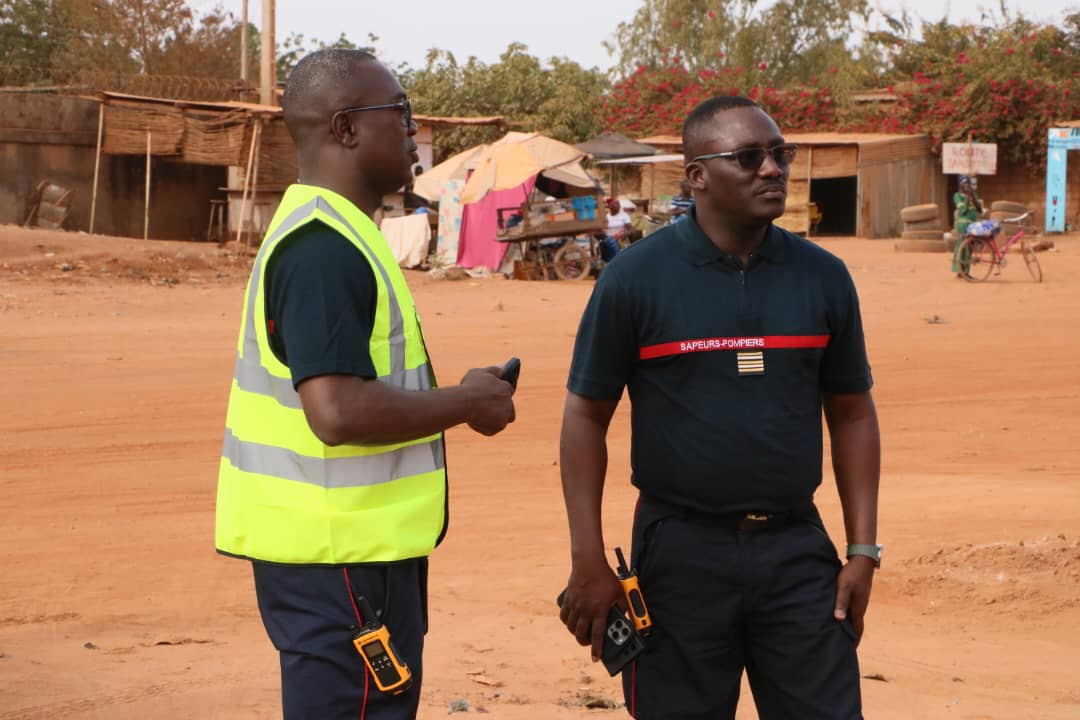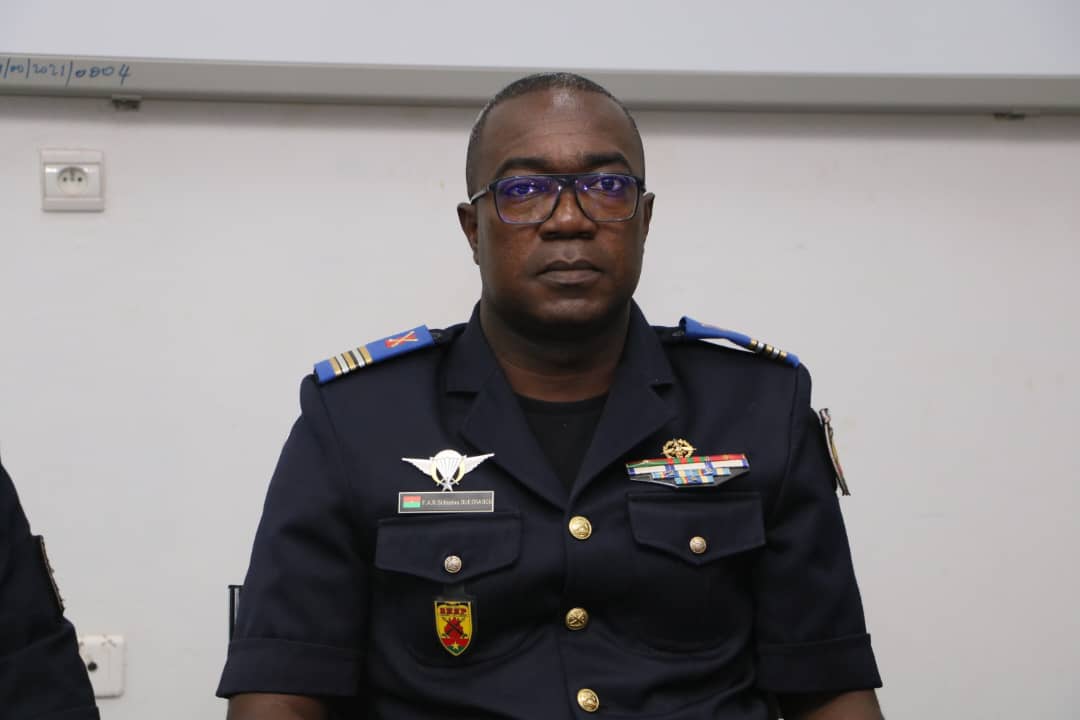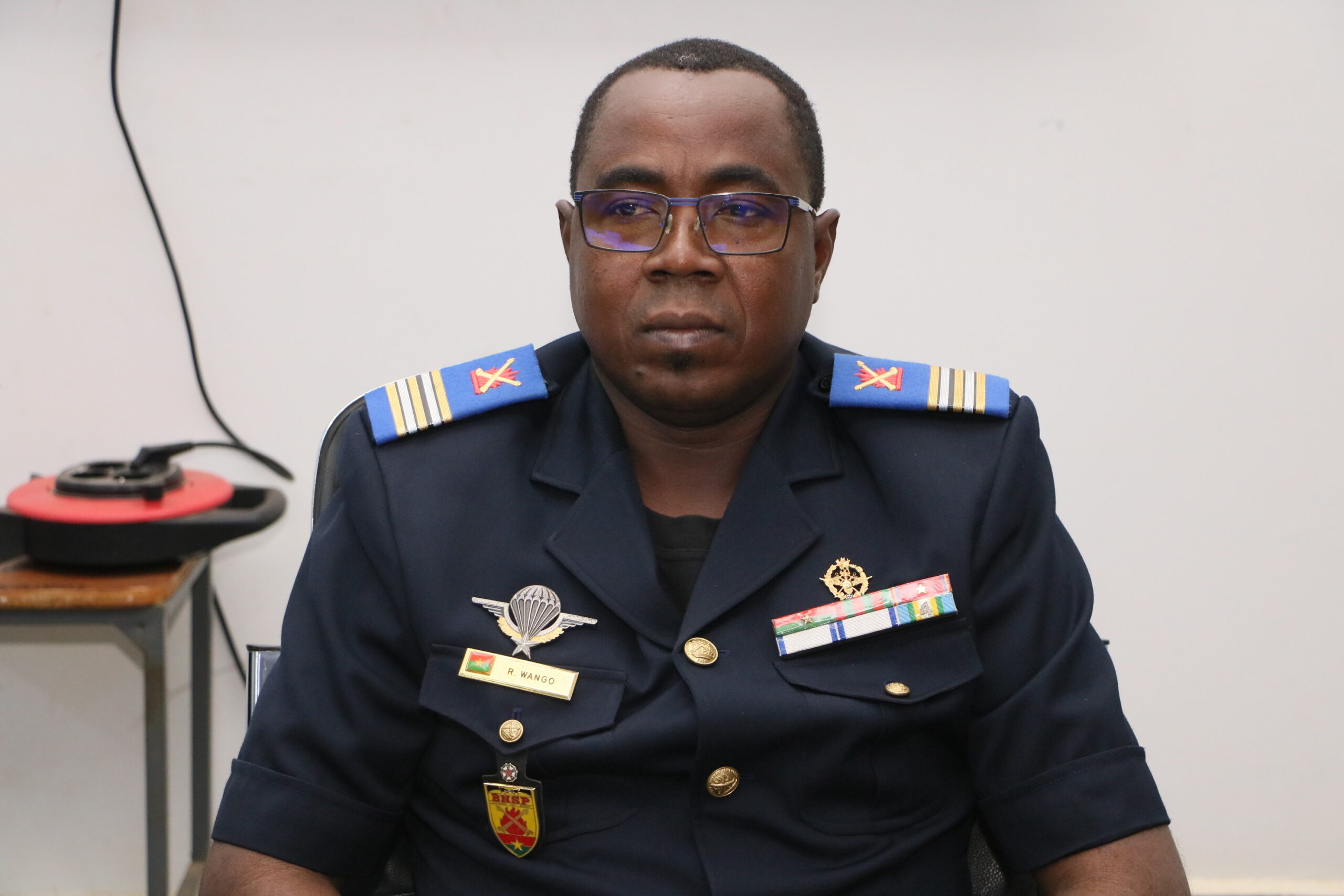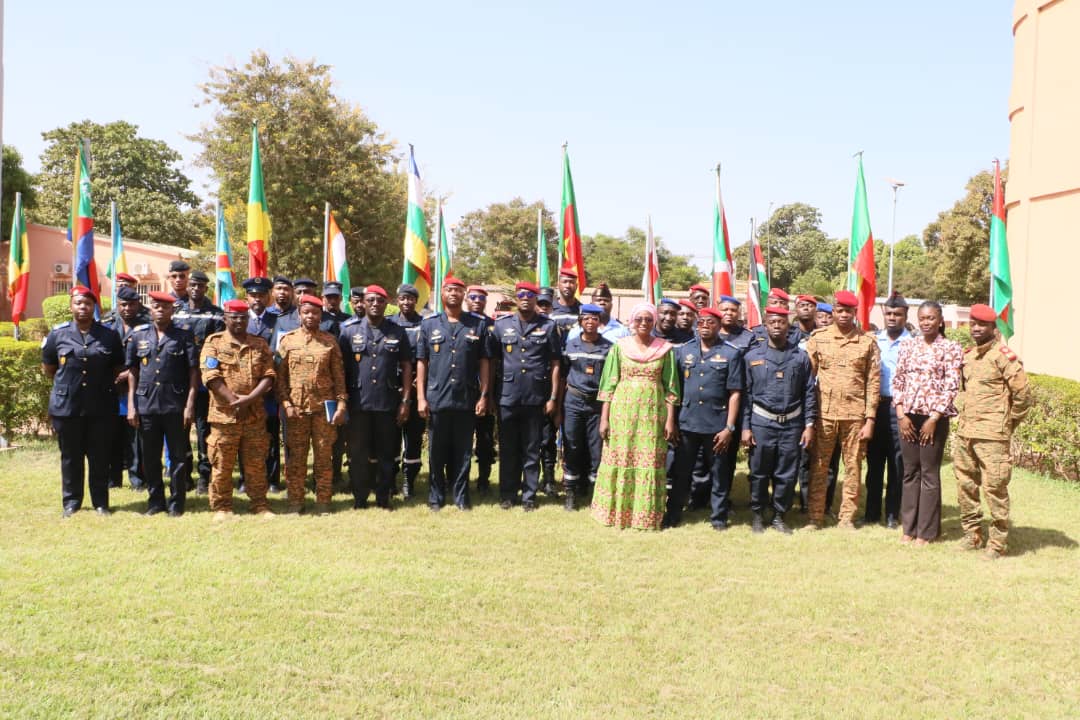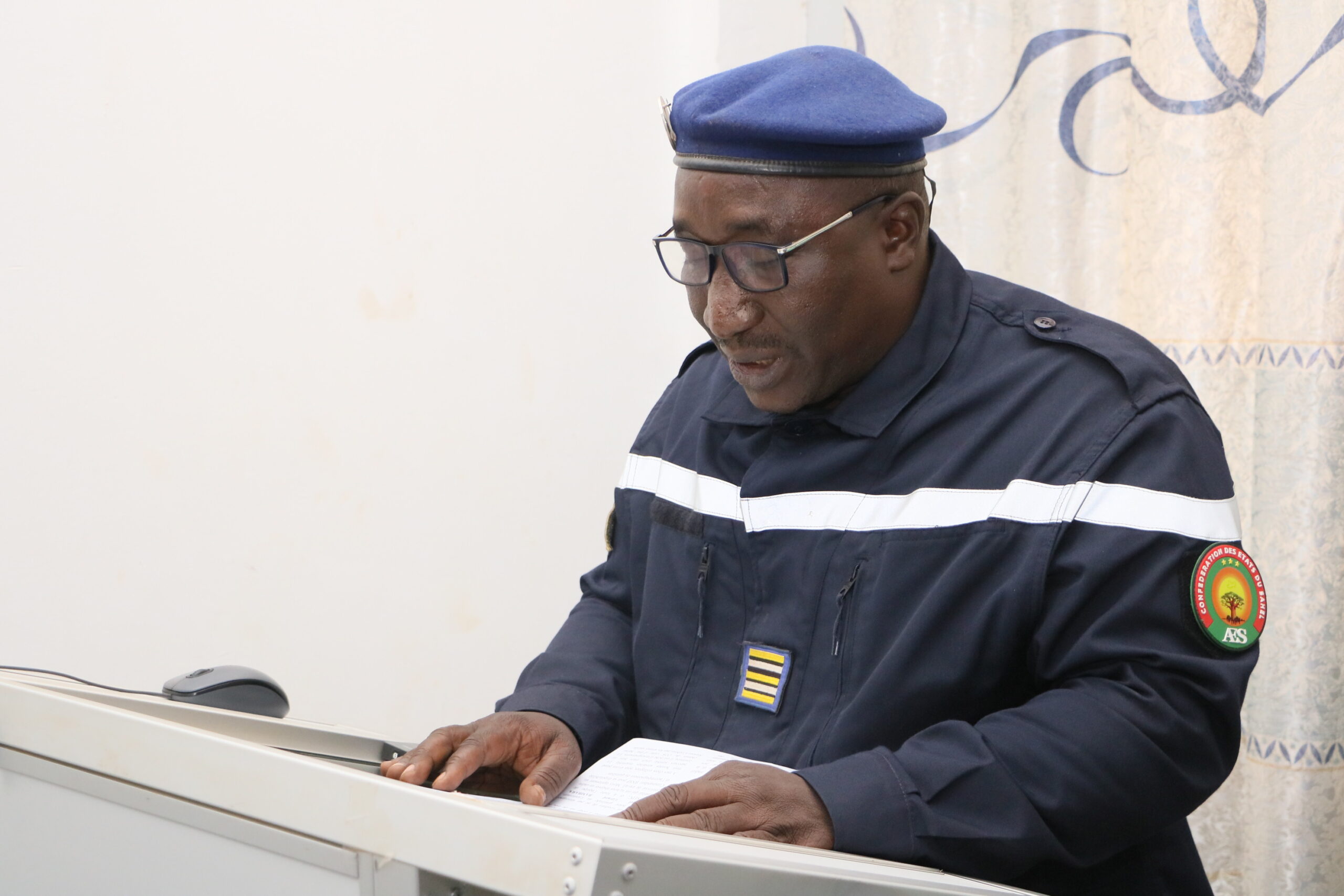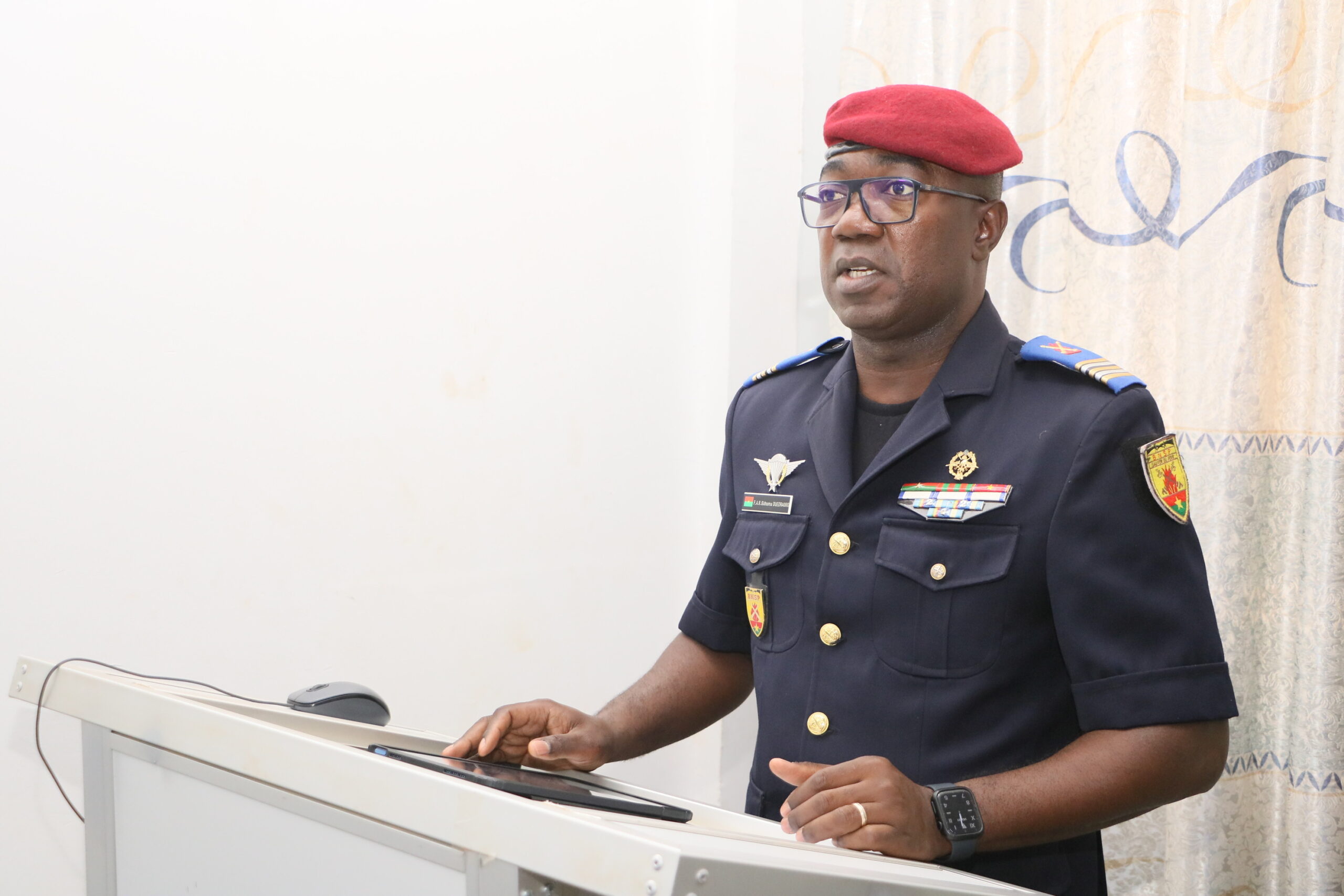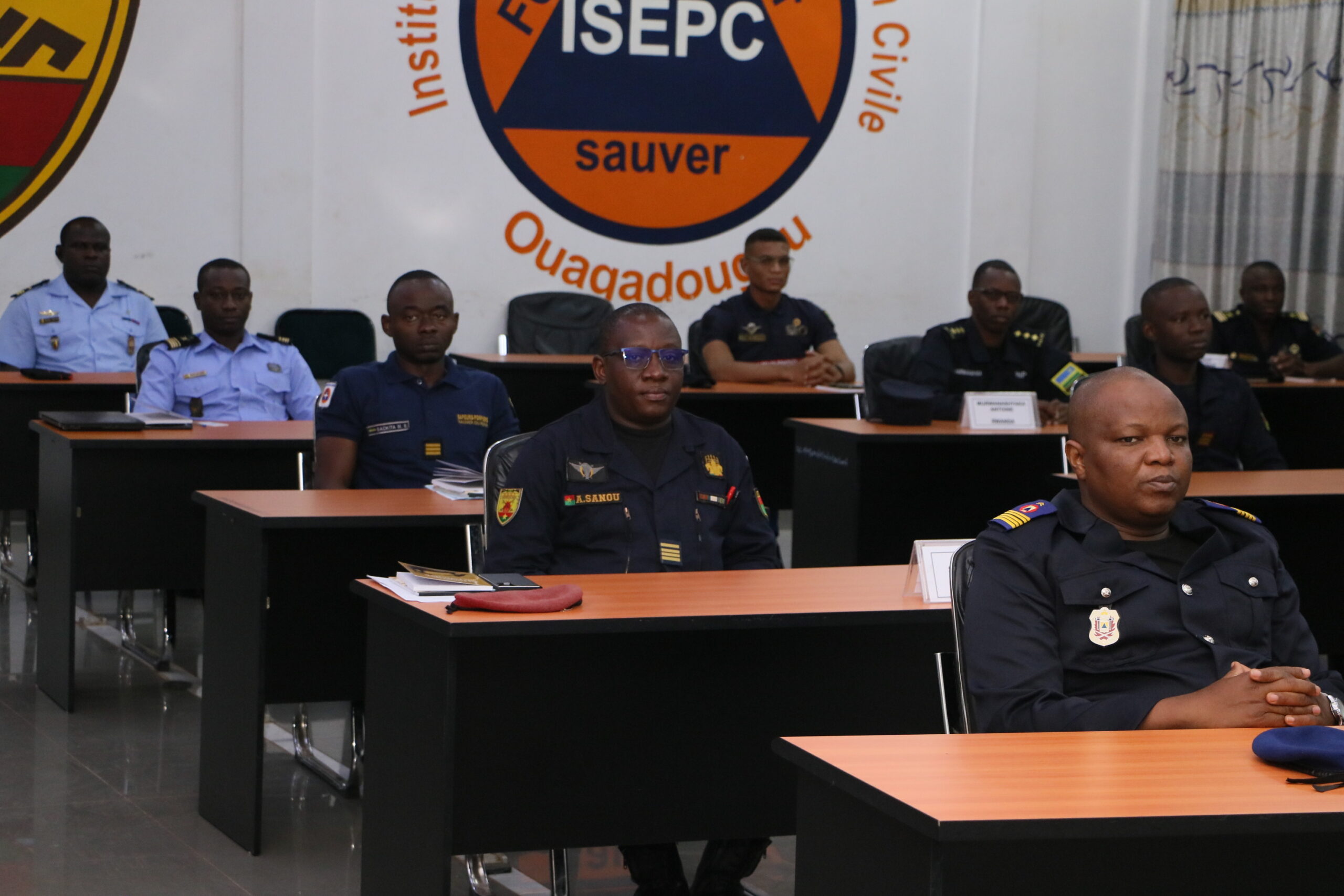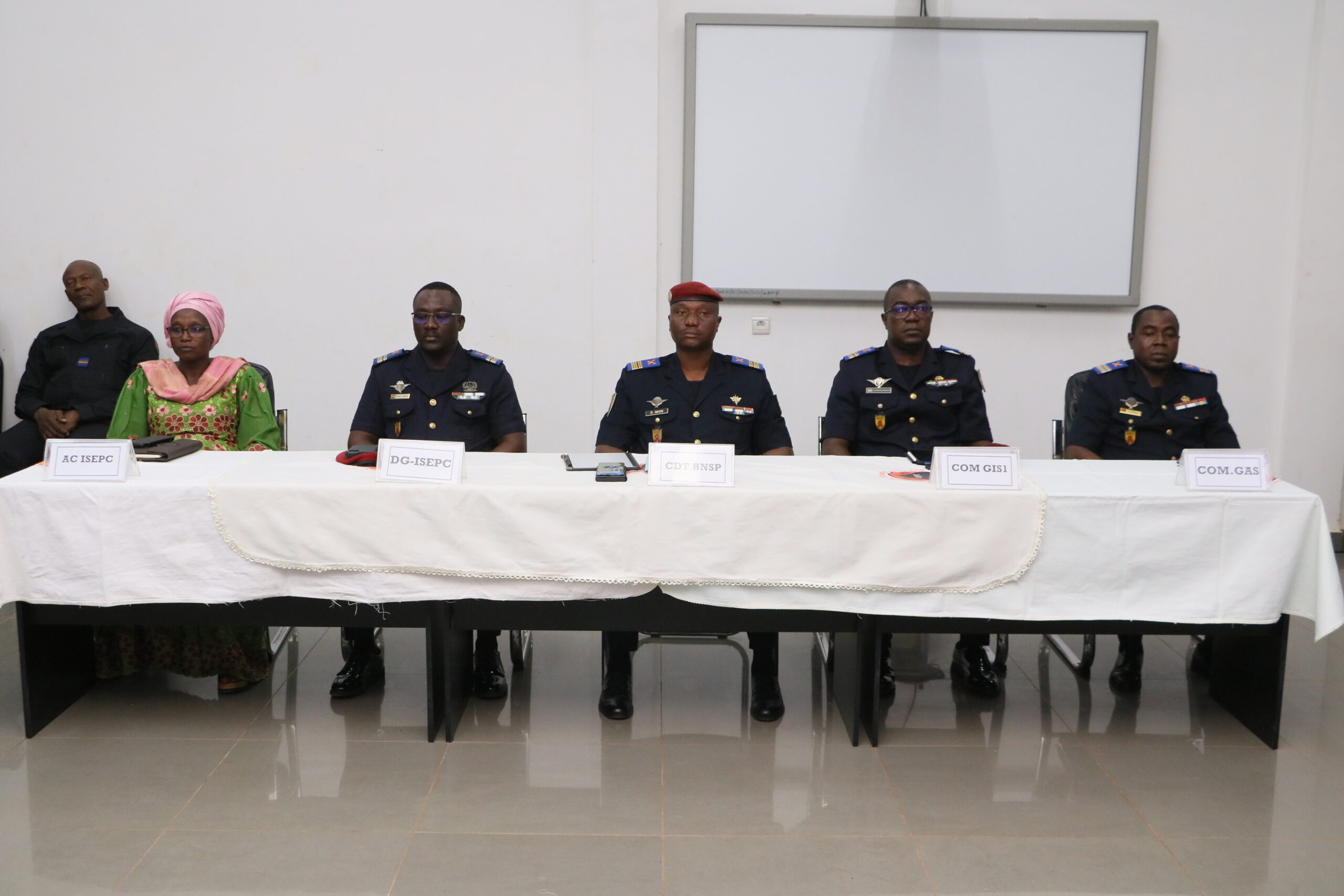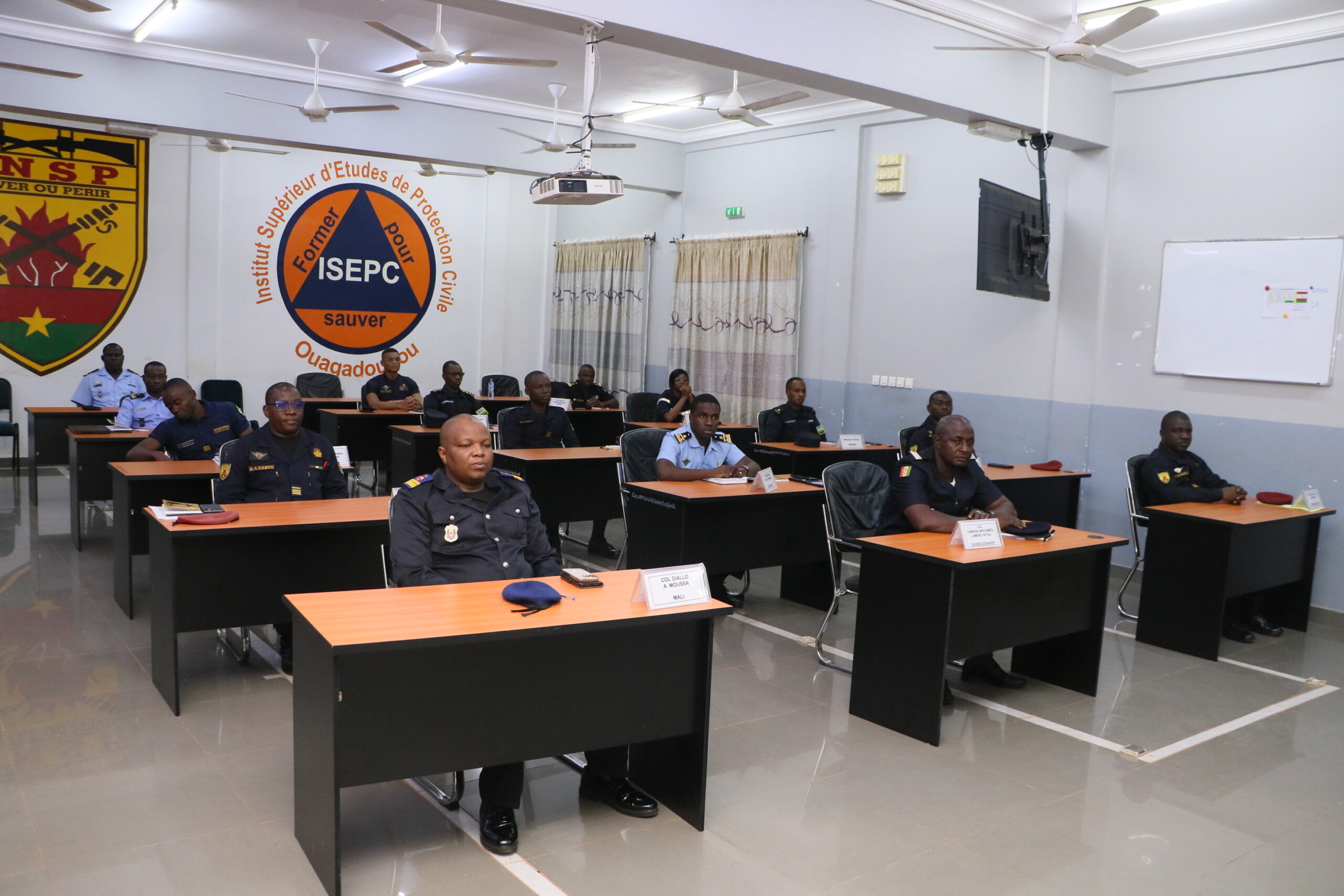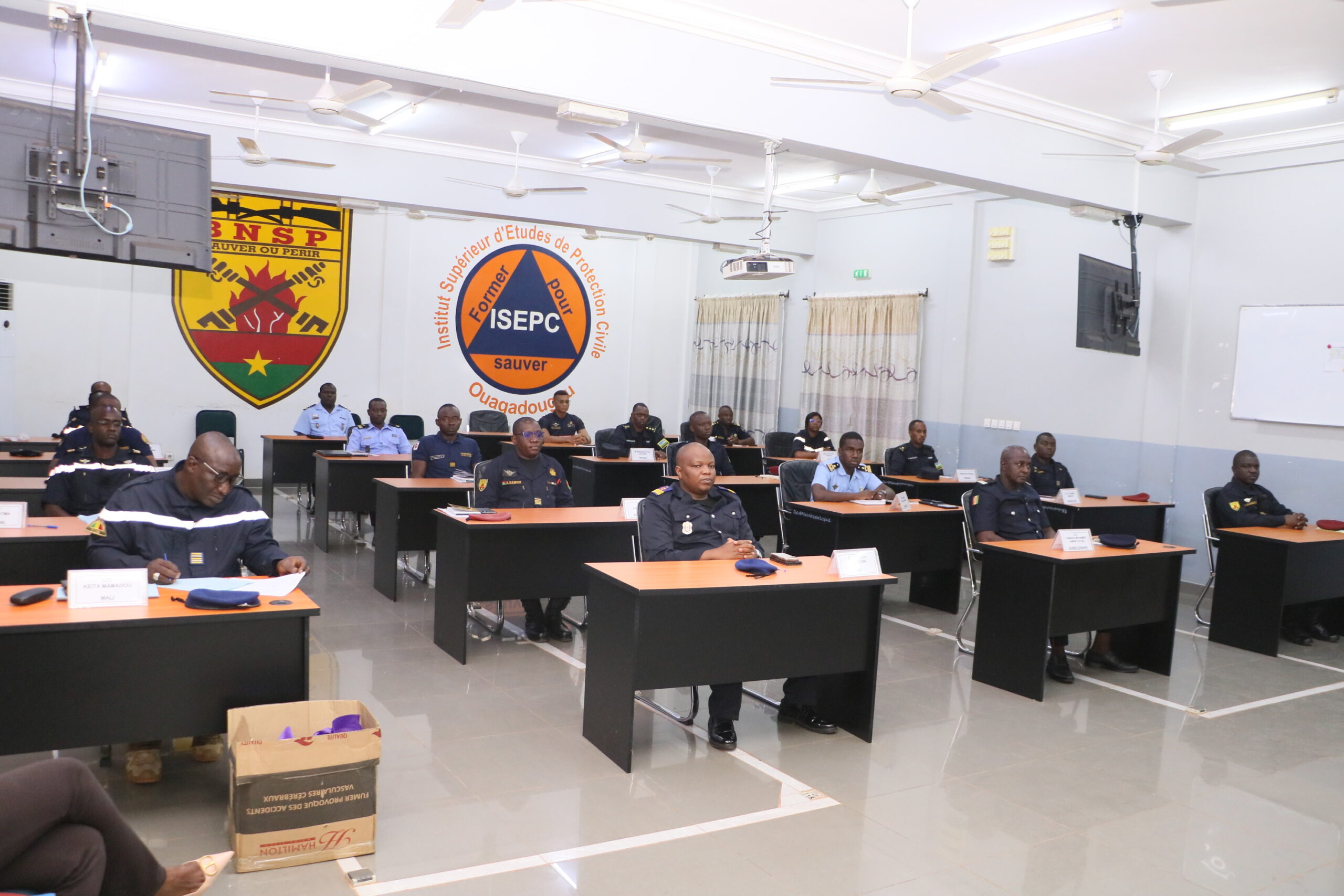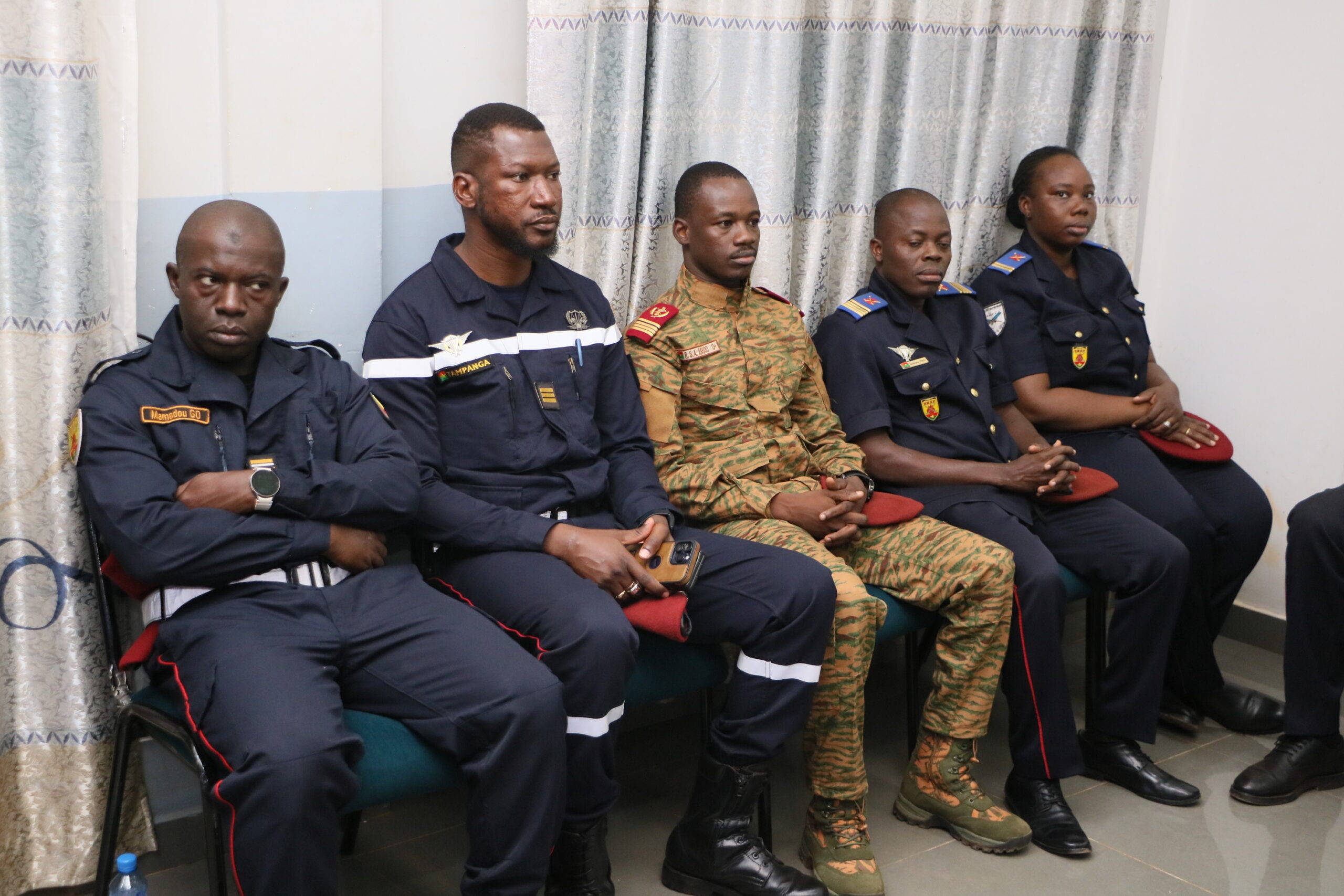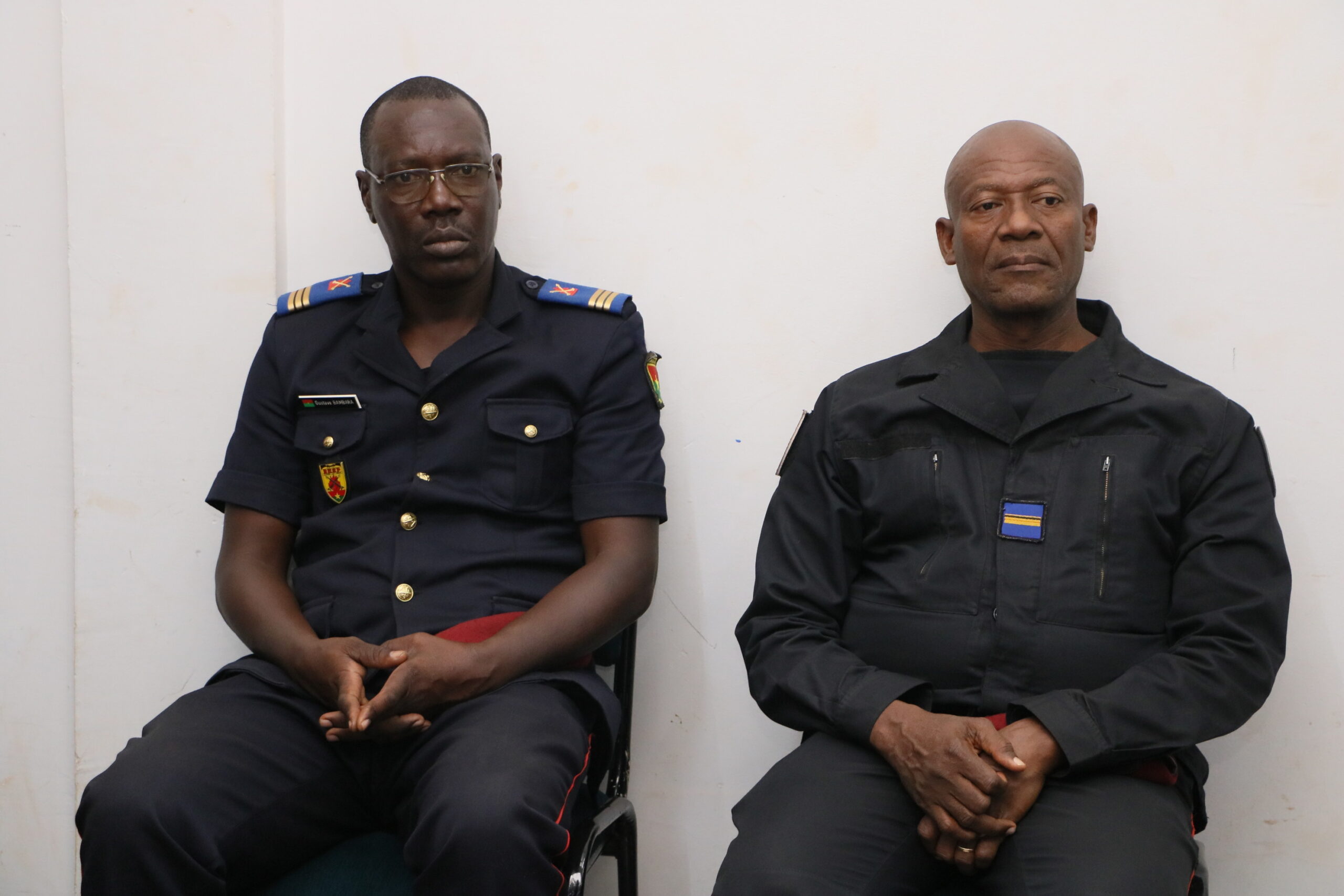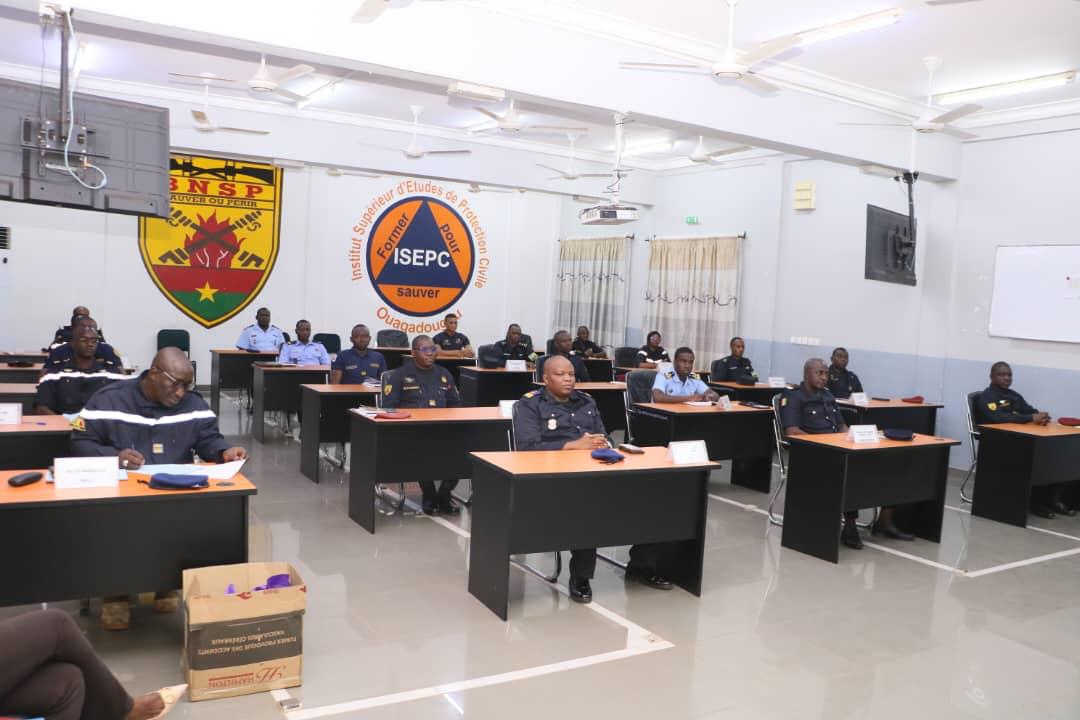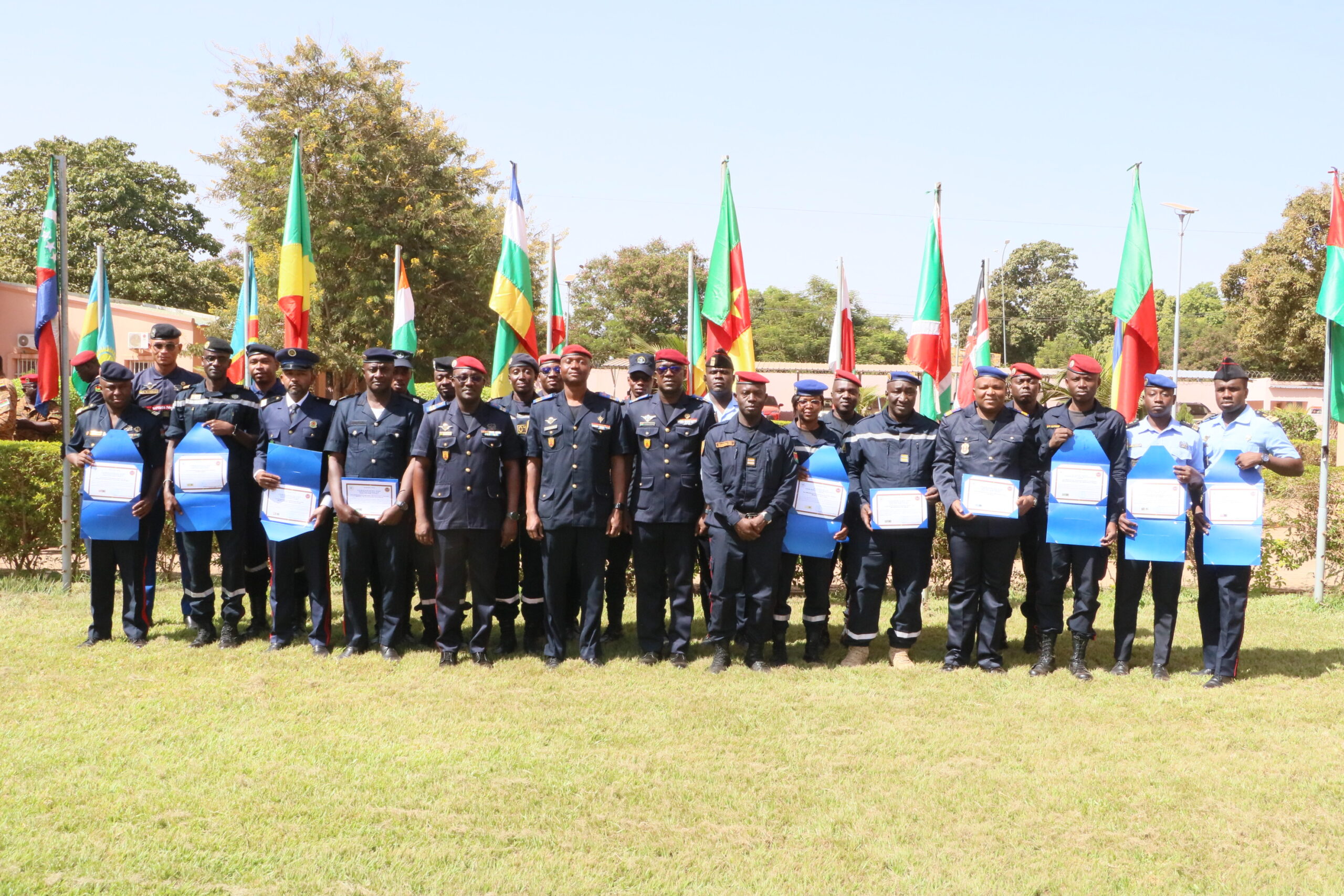
The Higher Institute for Civil Protection Studies (ISEPC) officially concluded its training course entitled “Commander of Rescue Operations / Director of Medical Rescue” (COS/DSM) on Friday, November 21st. The course benefited 21 trainee officers from 11 African countries: Cameroon, Comoros, Gabon, Guinea, Mali, Niger, Rwanda, Senegal, Chad, Togo, and Burkina Faso.
For three weeks, participants benefited from an intensive program alternating theoretical courses, practical workshops, and real-life simulations, all designed to strengthen their skills in planning and organizing rescue operations, inter-agency coordination, operational management of emergency situations, and the essential leadership required in critical contexts.
A major component of the training was dedicated to a practical and operational phase, comprising seven (7) full-scale exercises, including two (2) at night, one tabletop exercise, two educational visits, and presentations by civilian and military experts. At SONABEL (the national electricity company), the trainees conducted fire simulations in an industrial setting, focusing on the protection of electrical installations and the management of risks inherent to this type of environment.
At Ouagadougou Airport, they participated in demanding scenarios related to aircraft incidents, requiring inter-agency coordination and rapid decision-making.The trainees also conducted exercises in a high-rise building (IGH) at the Hôtel Laïco, where they practiced techniques for attacking fires at height, vertical evacuation, and securing occupants.
In parallel, full-scale exercises were carried out with the National Police and the National Gendarmerie, thus strengthening their ability to intervene in synergy with internal security forces.
These various exercises allowed the officers to acquire rich, immersive, and essential field experience for the effective conduct of rescue operations.
Speaking on behalf of the graduating class, the delegate, Lieutenant Colonel Mamadou Keita, expressed his satisfaction with the quality of the training received. He emphasized that these various exercises allowed all participants to develop a keen understanding of the operational requirements related to emergency response command. “The different topics covered are perfectly aligned with our current realities as well as those of the future,” he stated.
He also extended his sincere thanks to the entire management team of ISEPC and to the teaching staff for the organization and professionalism that characterized the entire training course.Speaking at the ceremony, Colonel Naon Daba, Chairman of the Board of Directors of ISEPC, congratulated the trainees for their commitment, discipline, and sense of duty throughout this demanding training program.
The chairman also encouraged the participants to apply the skills acquired within their respective institutions to contribute to the continuous improvement of national emergency response and crisis management systems. “I urge you to implement the knowledge gained during these three weeks of training, to share it within your departments, and to work towards its application,” he stated.
ISEPC: Training to Save Lives
